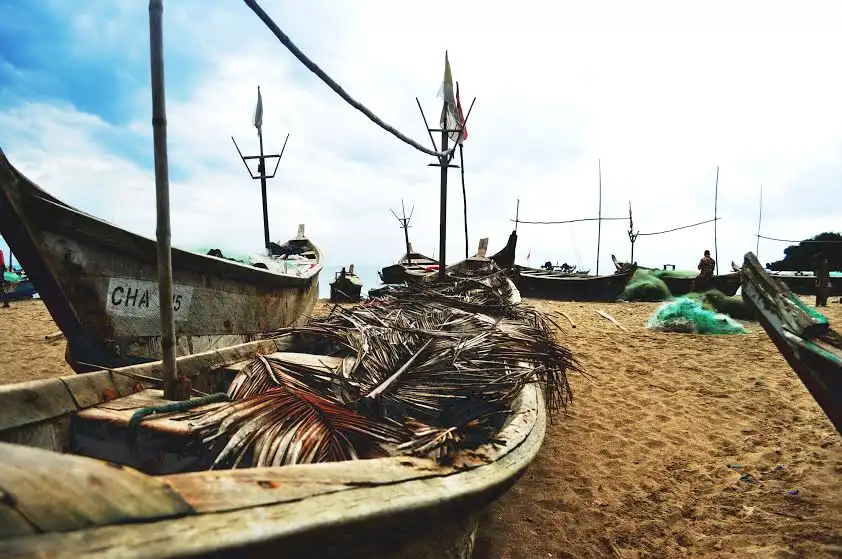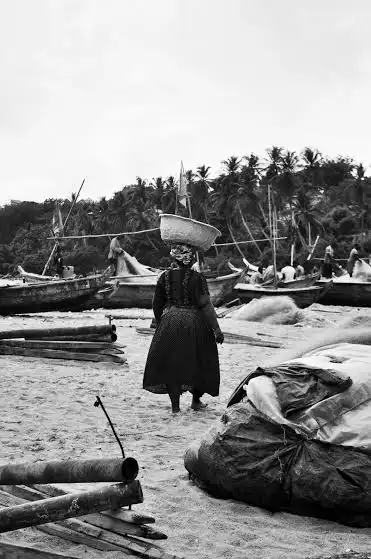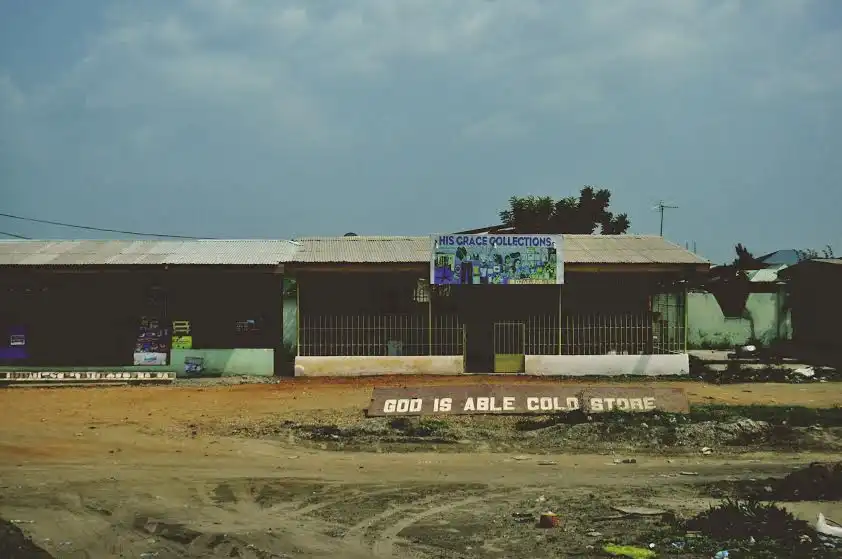This is Our Wall, Akwaaba
This is my wall. Free education. Each children to use as an office (...) All Human Equality, All Women Equality, All Human Rights Equality, All Injury Equality, All Men Equality, All Handicapped Equality, All Aged Equality, All Babies Equality, All Children Equality, All Benefits Equality, All Odds Equality, All Education Equality (...) Stop the Devil (cont.) The power of a photograph was something my mother made sure I understood from a young age. Growing up, the flashes only grew more blinding and the camera lenses grew bigger. I never really reflected on why I was continually blinded by flashes until I began taking photos of my own. The blinding flashes meant documentation. Documenting life, documenting people, documenting us- humanity. Such documentation resulted in reflection. Photos can sometimes best tell the stories that mouths simply inadequately attempt to articulate. Images can not only remind us of the details we unconsciously cut from our memory, but also immortalize such optical experiences which can then be revisited. What was once half of a second, now lives on indefinitely. As I look back on my photos from Ghana, I reflect on what my time there taught me about not only Ghanaian culture, but about the world and myself.
Although I have never lived in Ghana, my family moved to Accra when I moved to Shanghai. So, reflecting upon my photos of Ghana is a result of my interactions with the culture as a visitor. The power of reflection has become what I have valued most in my travels, and in my trip to Ghana in particular. Reflection itself seems to be a key aspect of what we refer to as ‘humanity’. As humans, we tend to think beyond the case of survival; we incorporate an important element of benevolence. We retain an innate need to critique ourselves, to improve our flaws. The people of Ghana most triggered my self-evaluation. Everyone I met seemed to value the importance of empathy, of hospitality- the ability to love, to send and share love. People are happy to be alive, happy that you are visiting their country, and happy to share their cultural identity with you. “Akwaaba”, which is Twi for “Welcome”, is the word I heard the most whilst in Ghana. However, the meaning of akwaaba exceeds the purpose of welcoming someone. It is a way in which one is greeted, a response to the word “thank you”, and also a farewell. The strong sense of hospitality creates a vibrant ambiance one does not escape, and that well embodies Ghanaian culture.
The welcoming nature of the Ghanaian people allows for a sense of tranquility amongst so much diversity, and the fusion of cultures. Ghana’s diversity coincidentally can maintain an easy setup for people to assimilate themselves into the local community, as Accra’s melting pot provides a welcoming, hospitable environment for all. Ghana has four major ethnic groups, such as the Akan, Moshi-Dagbani, Ewe, and the Ga. Christianity and Islam are the main religions, although many also practice traditional religions. Those that do practice religion, seem to do so with great passion and devotion. Billboard signs infiltrate the city promoting salvation and an array of church leaders. Many come from different beliefs and traditions, but among this great diversity, a sensation of acceptance and peace remains. Perhaps those of Ghana have constructed what many of us- perhaps myself included- have not. They have begun constructing a wall creating the foundation and supporting the development of equality, happiness and peace. Just as the wall states, Ghana encaptures a desire for “All Human Equality, All Women Equality, All Human Rights Equality, All Injury Equality, All Men Equality, All Handicapped Equality, All Aged Equality, All Babies Equality, All Children Equality, All Benefits Equality, All Odds Equality, All Education Equality.” Due to its simple yet intricate messages, I have reflected upon this particular photo many times. If given one word to describe Ghana, I would choose colour. When I reminisce on my time in Ghana, I envision blissful, pixelated colours as I stare out my passenger seat window. One of my favourite ways to tour a country is to sit in a car, and stare out the window as you pass from street to street, exchange five second smiles with fruit vendors, and let the colours of the buildings encapture you. I spent a lot of time observing my passenger seat window over the few weeks I was in Accra. Not only does traffic have the tendency to become congested, but also by driving through the city you’re given a chance to see things you would otherwise never see. For instance, Ghana is known for their unique funeral traditions. Even the commemoration of death seems to express a mood of happiness- their coffins have an element of art. It is fairly common to stumble across a Nike shoe, a Coca-Cola, or a piano designed coffin. The general perspectives on life seem to be nothing less than positive. With that said, the opaque tinted glass seems to block time from passing, and send me into a trace of pixelated colour. I took this photo driving around Accra, after passing thiswall twice. Each time I passed it, I was able to read a bit more. The lines intrigued me, and the third time I passed it, I seized the opportunity for a photograph. After taking the photo, I had the car stop while I sat and observed. After observing the wall, it was the colour from in between the lines that began to captivate me. told more about the colour in between the lines that began to intrigue me. After observing the wall, the colour from in between the cries for help overpowered what had initially captivated me. At first glance, the wall conveyed messages about inequality, sadness, and the inhumanity that pervades through Ghanaian society. However, I’d like to think quite the opposite. The wall appears black and white, but once one reflects on the script, it too, paints itself in the colours of Ghana. This wall reflects the humanity, the smiles, and the happiness that defines Ghana as a whole. In fact, Accra is probably one of the most colourful places I have ever experienced both tangibly and metaphorically. After spending many years in Ghana, Maya Angelou onced stated, “While the rest of the world has been improving technology, Ghana has been improving the quality of man’s humanity to man.” How right she was. Like me, she decided to observe and reflect upon the colours- which pervade through every smile, street corner, and car sign. I pass faces, smiles, houses- all embodying the same colours- the colours of happiness and the colours of humanity. To those of you traveling to Accra this fall, Akwaaba!




This article was written by Anna Perez. Send an email to managing@oncenturyavenue.com to get in touch. Photo Credit: Anna Perez